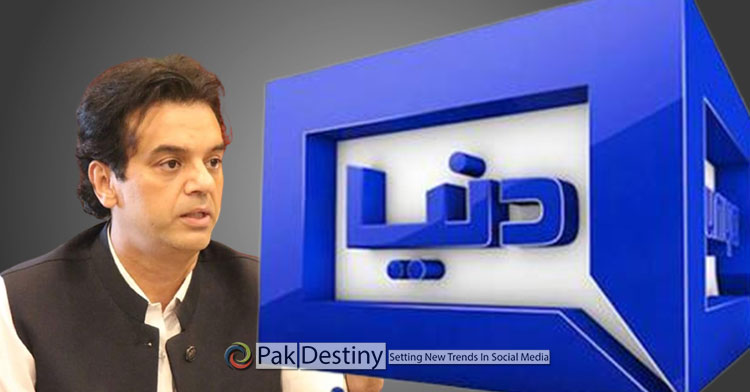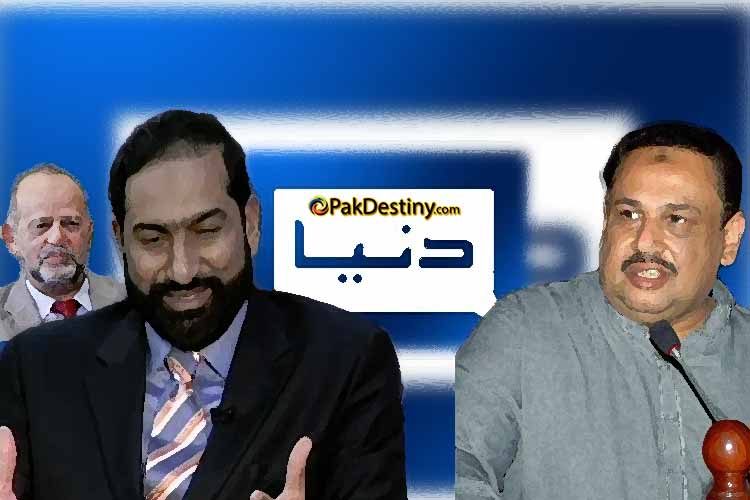
— An abject surrender cannot and should not be the only legacy
— Many journalists do not even understand the difference between good and bad journalism
— Survival of the media will depend not on the artificial ecosystem but the faith of the people of Pakistan
By Irum Saleem
In Pakistan, like many other truths, an artificial ecosystem keeps it alive, as it does other industries. However, the reality escapes everyone. For artificial resuscitation has everyone who wants to be fooled in a state of denial, writes journalist Arifa Noor.
“Consider an interview that made waves last week. Someone who was missing suddenly appeared at someone’s home, gave an interview, and disappeared again (a reference to PTI leader Usman Dar). I say disappear because gossip aside, there is no real information on where he is. Information that would be provided either by the man himself or by a credible platform. He could be home or not. What do we know?
However, regardless of what the powerful did, the media — a word which has replaced the far smaller and more ethical press we were once a part of — ran it with very little debate on the ethics of running a ‘confession’ of a prisoner.”
In that moment, Saulat Mirza, a convicted murderer, was a victim because those with power over him could well have coerced him into giving that interview. But in Pakistan and for its journalists, victims have rights only if they are deemed ‘mazloom’ enough or innocent enough. If the victim is unpalatable, rights don’t matter.
Noor further writes: “From here onwards, it didn’t take us very long to journey to interviews of people who are alleged to have taken part in financial crimes of politicians and now the politicians themselves.
And if we think it will stop here, we are living in la-la land. It will be the journalists next. And those who own the channels. If one was arrested a few years ago, the next time around, he or she might be ‘convinced’ to confess their sins.”
“So speak we must. Not for the terrorist, or the murderer or the politician but the fear that one day we too end up in their place, coerced into confessing our sins, imagined and real.”
Perhaps this is also a moment for journalist organisations to step up. Instead of blaming media owners or hobnobbing with information ministers, could not discussions at least be held on the ethics of such interviews?
Sometimes, it is important to simply state the obvious and condemn the condemnable, so that those who come after us know we tried to do the little we could. It may not have been enough but at least we didn’t capitulate entirely.
“An abject surrender cannot and should not be the only legacy. Especially because it appears many among us do not even understand the difference between good and bad journalism.”
And this perhaps is the reason why those who watch and read us are losing their faith in journalism. As with much else in this society, the survival of the media will depend not on the artificial ecosystem but the faith of the people of Pakistan.
“Eventually. Money and power can and will continue to change hands but trust is not this easily lost and found.
From here onwards, it didn’t take us very long to journey to interviews of people who are alleged to have taken part in financial crimes of politicians and now the politicians themselves.
And if we think it will stop here, we are living in la-la land. It will be the journalists next. And those who own the channels. If one was arrested a few years ago, the next time around, he or she might be ‘convinced’ to confess their sins.
Arifa Noor further says so speak we must. Not for the terrorist, or the murderer or the politician but the fear that one day we too end up in their place, coerced into confessing our sins, imagined and real.
Perhaps this is also a moment for journalist organisations to step up. Instead of blaming media owners or hobnobbing with information ministers, could not discussions at least be held on the ethics of such interviews?
Sometimes, it is important to simply state the obvious and condemn the condemnable, so that those who come after us know we tried to do the little we could. It may not have been enough but at least we didn’t capitulate entirely. PAK DESTINY






